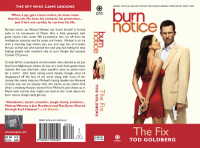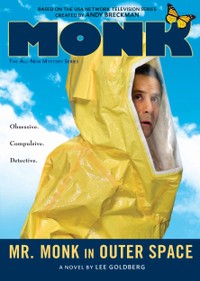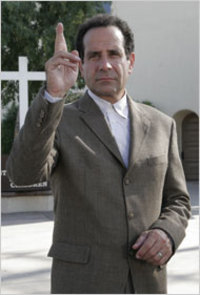My sisters Karen Dinino and Linda Woods, authors of the bestselling books VISUAL CHRONICLES and JOURNAL REVOLUTION, can teach you to be an artist. All it takes is an ironing board, a glue stick, and a little imagination.
Kentucky Woman, She Shines in her Own Kind of Light

I’ve got some good news to share…my original screenplay "Mapes For Hire," based on my novel THE
MAN WITH THE IRON-ON BADGE, has been nominated for an Angie Award at the second annual International Mystery Festival in Owensboro, Kentucky …even better, the script will be performed on stage like an old-time radio show during the festival at the Riverpark Center. Other nominees in this category include scripts by Ray Bradbury, Rupert Holmes, and my friend Robert S. Levinson, so I am in very good company.The winner gets a statuette, a couple of grand in cash, and maybe even a bucket of Colonel Sanders fried chicken. All of that would be nice, but I can’t wait to "hear" my script performed, which is prize enough for me.
Outside the Comfort Zone
 My brother Tod writes today about the fun he’s having writing the BURN NOTICE books…and what he’s learning about himself as a writer
My brother Tod writes today about the fun he’s having writing the BURN NOTICE books…and what he’s learning about himself as a writer
along the way:
I must say that writing this sort of comic noir is pretty damn fun to
do. I’ve got two more to write after this one, each with a
substantially longer deadline, thank god, and I’ve really had to teach
myself that I don’t need to have an unreliable narrator facing some
sort of mortal pain in every line, like many of my stories and novels
previously have had, and that it’s okay to just have fun, line by line,
day by day, writing for the entertainment of it all. I’ve been asked by
a lot of people why I decided to do these books and my answer has been
the same each time: It seemed like it would be pretty cool. It seemed
like I’d reach about 50,000 more readers than I usually do. It seemed
like a great way to learn, again, how to write something completely out
of my comfort zone, to challenge myself in new and interesting ways.
I knew he’d like it. It will be interesting to see how he feels a year from now after he’s written two of these books and is well into his third.
Tod asked me the other day how I kept up the pace. That’s when I realized that I’ve written 17 novels since 2003, 15 of which have been published, one that’s coming in July, and one that I’m in the midst of now.
I didn’t really have answer for him. I like to write, for one thing. And I live in fear…writing is how I pay the bills and if I am not writing, I start worrying about ending up boiling hamburgers at McDonalds while my wife sells her body on Sunset.
That’s not to say I don’t feel the pressure, but lately it has eased up a bit. Since I dropped the DIAGNOSIS MURDER books, I’m not writing a new book every 90 days any more…and, at the moment, I’m not running a TV series or jetting back and forth to Europe every two weeks either. So writing this latest book hasn’t been quite the same kind of juggling act, though I am certainly feeling my deadline approaching in eight weeks.
And I am eager to write something which, as Tod says, takes me outside of my comfort zone.
"The Past Tense" novel in the DIAGNOSIS MURDER series was like that — I set the book in the 1960s (I’d never written anything that was "present day") and wrote Mark Sloan from first-person instead of third person. It was scary and tough and I was certain I would fail. But it turned out to be the best-reviewed book in the series and one of the few times a paperback original TV tie-in got noticed in the mainstream press. I’m very proud of it. I also tried a little narrative-trick in the DIAGNOSIS MURDER novel "The Double Life" that was scary, and I like to think that I pulled it off. Whether I did or not, it gave me a thrill just trying it and powered me through whatever exhaustion I was feeling at the time.
The first MONK was also a challenge for me — writing in first person from a woman’s point-of-view. It worked, too. But now I have done that for seven books and am comfortable with it. I need to shake myself up again. I don’t know what that new writing challenge will be, but hopefully 2008 will be the year I take it on.
Mr. Monk and the Gumshoe

The Gumshoe Review has given MR. MONK IN OUTER SPACE a nice review. They say, in part:
Mr. Monk in Outer Space is another typically well-crafted effort
from Lee Goldberg. The scenes flow seamlessly and quickly, the dialogue
is always fun, and while some of the situations frankly stretch the
limits of believability, there is some indefinable quality to
Goldberg’s writing that makes us believe it anyway. There may be some
readers who will say that writing novels based on a television series
is easier than conventional fiction, because the readers will already
have a sense of the characters from having watched the program. But
this reviewer is not a watcher of television, and has never seen a Monk
program. Yet the characters still leap off the page as clearly defined
people, some of them from real life, but more often than not clever
caricatures.
Thank you, Gumshoe!
The PW Variation

Mark Sarvas, who runs the excellent L.A.-centric lit-blog The Elegant Variation, has his first novel HARRY, REVISED coming out in May and it has earned a glowing review from Publishers Weekly, which can’t help commenting:
[…] though there may be legions of writers spurned by his blog just willing Sarvas to fail, this is a self-assured, comic and satisfying story.
It will be interesting to see how the Los Angeles Times reviews his book.
Finding Religion

The MWA anthology BLUE RELIGION, edited by Michael Connelly, scored a rave review from Publisher’s Weekly:
The Mystery Writers of America presents a high-quality anthology of 19 original stories that explore a wide range of police experiences, from newcomer Polly Nelson’s superb tale set in 1864 Kansas, "Burying Mr. Henry," to editor Connelly’s powerful and grim Harry Bosch investigation into a young disabled boy’s death, "Father’s Day." The sordid mean streets, depicted in Persia Walker’s "Such a Lucky, Pretty Girl," are nicely balanced with the lighter touches of Jon Breen’s "Serial Killer," a darkly comic tale in which two police detectives recount one of their cases to a community college writing class. TV writer Paul Guyot contributes one of the volume’s strongest selections, "What a Wonderful World," about a cop’s obsessive search for the killer of a hot dog vendor. This is one of those rare themed anthologies that can be enjoyed at one sitting.
I was chairperson of the MWA committee that selected half of the stories for the book, so I’m very happy about the review. And I am doubly pleased to see my friend Paul Guyot’s story singled out for praise.
TV Main Title of the Week
Spencer’s Pilots…with a great theme by Morton Stevens.
Mr. Monk and the Parallel Universe

I thought the two-part MONK season finale was great, but it points out one of the pitfalls of writing a tie-in series while the TV show that it is based on is still in production. It means that there are going to be some continuity miss-matches between the TV series and the books…and there’s nothing that can be done about it.
I finished my book MR. MONK GOES TO GERMANY back in October 2007 and it will be published in July 2008. In between that time, the MONK writers wrote, produced and broadcast the season finale. I am now well into writing MR. MONK IS MISERABLE, which comes out next winter…by the time I deliver that manuscript, the MONK writers will have just begun writing the season seven scripts. You can see the problem.
Andy Breckman, the creator and executive producer of MONK, knows in advance what I will be writing and approves the storylines. But I certainly don’t expect him or his staff to feel creatively bound to any of the events or details that I create in my books. The show comes first. That said, there are bound to be diehard fans who expect strict continuity between the books and the TV series …and they are going to stumble over a few miss-matches.
Both my book and the finale, "Mr. Monk is on the Run," involve Monk encountering a man with six fingers on one hand. That’s actually okay. A fan could assume that my book takes place before the events in the season finale. In fact, it only reinforces Monk’s attitude towards the "second" man with 11 fingers that he meets. The book and the episode would fit together pretty well chronologically, "factually," and even emotionally, if not for the last scene of the two-parter.
Oh well.
I have a disclaimer in my books that warns readers that, while I try hard to stay close to the continuity of the show, the long lead time of the books makes that next to impossible (an entire season is produced between when I turn in the book and when it comes out).
I read all the scripts and I talk to Andy about what he has in mind for the season ahead, but even so, continuity problems are bound to happen. Hypothetically, for example, Sharona may come back on the show some day and the story they come up with may have nothing to do with MR. MONK AND THE TWO ASSISTANTS (and, unless they adapt the book, won’t acknowledge those events at all).
I don’t obsess about the miss-matches and neither does Andy. He once said to me that, in his mind, the Monk TV series and the Monk books are separate entities…the same characters in parallel universes…and while they are consistent with one another most of the time, there are bound to be some differences now and then.
There’s the TV shows and there are the books. They are not one in the same. He is okay with that and so am I. I hope that most of the fans will be, too.
Mannix comes to DVD
 Back in November, the Washington Post wrote about MANNIX and efforts by fans to get the iconic private eye show on DVD. Well, I guess the publicity paid off. TVShowsonDVD reports that the first season of MANNIX is coming to DVD in June. But that first year of the show was about an "old school" detective Joe Mannix (Mike Connors) working for a "high-tech" computerized detective agency run by Joseph Campanella. The ratings weren’t great so, for year two, it became a straight-forward, old-fashioned, PI show with Joe Mannix on his own, aided only by his secretary (Gail Fisher) and his various friends on the police force. The ratings rebounded and the show ran for seven more years. It was canceled while it was still a hit, making a baffled Connors wonder if then CBS-boss Fred Silverman was simply tired of the show…
Back in November, the Washington Post wrote about MANNIX and efforts by fans to get the iconic private eye show on DVD. Well, I guess the publicity paid off. TVShowsonDVD reports that the first season of MANNIX is coming to DVD in June. But that first year of the show was about an "old school" detective Joe Mannix (Mike Connors) working for a "high-tech" computerized detective agency run by Joseph Campanella. The ratings weren’t great so, for year two, it became a straight-forward, old-fashioned, PI show with Joe Mannix on his own, aided only by his secretary (Gail Fisher) and his various friends on the police force. The ratings rebounded and the show ran for seven more years. It was canceled while it was still a hit, making a baffled Connors wonder if then CBS-boss Fred Silverman was simply tired of the show…
I know both sides of the story (I worked with Connors and Silverman), but I’m not telling. Maybe Connors will tell you more about it in the interview that comes as one of the DVD extras.
Mr. Monk und die Montagsgrippe

The German edition of MR. MONK AND THE BLUE FLU just came out, and is already getting some very nice reviews, including this one (in German, of course!) from Alligatorpapiere. He likes the first two books in the series, too.







